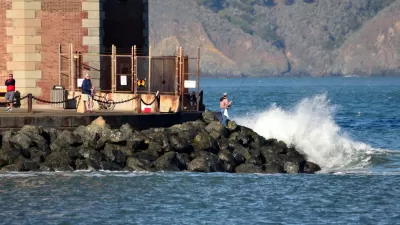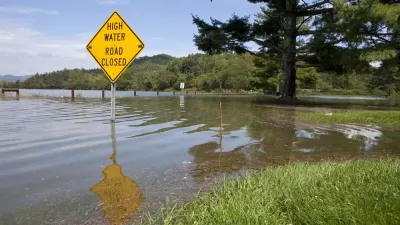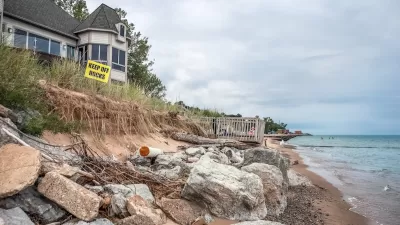Zillow has released research on how many of the nation's homes may be underwater (literally) by the year 2100. Florida, Hawaii, New Jersey, and Louisiana are at the highest risk.

In an attempt to quantify the effect of climate change on housing supply, Zillow has compiled data on how many structures will likely be in danger by the year 2100, if not sooner.
Krishna Rao writes, "To quantify the impact of rising sea levels, we used maps released by the National Oceanic and Atmospheric Administration (NOAA) showing which parts of coastal states will be underwater if sea levels rise by six feet. Why six feet? Some estimates suggest sea levels will rise that much by the year 2100 if climate change continues unchecked."
"Nationwide, almost 1.9 million homes (or roughly 2 percent of all U.S. homes) – worth a combined $882 billion – are at risk of being underwater by 2100. And in some states, the fraction of properties at risk of being underwater is alarmingly high." The coastal homes at risk are worth significantly more than the American average: about $300,000 to the average $187,000.
The article includes a sobering chart showing estimates of how many properties may be affected by 2100, their combined value on the current market, and what fraction of the state's total housing stock they represent. There are also maps of individual cities with potentially flooded areas marked in blue.
FULL STORY: Climate Change and Housing: Will a Rising Tide Sink all Homes?

Planetizen Federal Action Tracker
A weekly monitor of how Trump’s orders and actions are impacting planners and planning in America.

Map: Where Senate Republicans Want to Sell Your Public Lands
For public land advocates, the Senate Republicans’ proposal to sell millions of acres of public land in the West is “the biggest fight of their careers.”

Restaurant Patios Were a Pandemic Win — Why Were They so Hard to Keep?
Social distancing requirements and changes in travel patterns prompted cities to pilot new uses for street and sidewalk space. Then it got complicated.

Platform Pilsner: Vancouver Transit Agency Releases... a Beer?
TransLink will receive a portion of every sale of the four-pack.

Toronto Weighs Cheaper Transit, Parking Hikes for Major Events
Special event rates would take effect during large festivals, sports games and concerts to ‘discourage driving, manage congestion and free up space for transit.”

Berlin to Consider Car-Free Zone Larger Than Manhattan
The area bound by the 22-mile Ringbahn would still allow 12 uses of a private automobile per year per person, and several other exemptions.
Urban Design for Planners 1: Software Tools
This six-course series explores essential urban design concepts using open source software and equips planners with the tools they need to participate fully in the urban design process.
Planning for Universal Design
Learn the tools for implementing Universal Design in planning regulations.
Heyer Gruel & Associates PA
JM Goldson LLC
Custer County Colorado
City of Camden Redevelopment Agency
City of Astoria
Transportation Research & Education Center (TREC) at Portland State University
Camden Redevelopment Agency
City of Claremont
Municipality of Princeton (NJ)





























